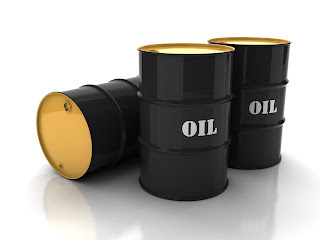For other uses, see Oil (disambiguation). why
An oil is any neutral, nonpolar chemical substance that is a viscous liquid at ambient temperatures and is both hydrophobic (immiscible withwater, literally "water fearing") and lipophilic (miscible with other oils, literally "fat loving"). Oils have a high carbon and hydrogen content and are usually flammable and slippery.
The general definition of oil includes classes of chemical compounds that may be otherwise unrelated in structure, properties, and uses. Oils may be animal, vegetable, or petrochemical in origin, and may be volatile or non-volatile.[1] They are used for food, fuel, lubrication, and the manufacture of paints, plastics, and other materials. Specially prepared oils are used in some religious ceremonies as purifying agents.
